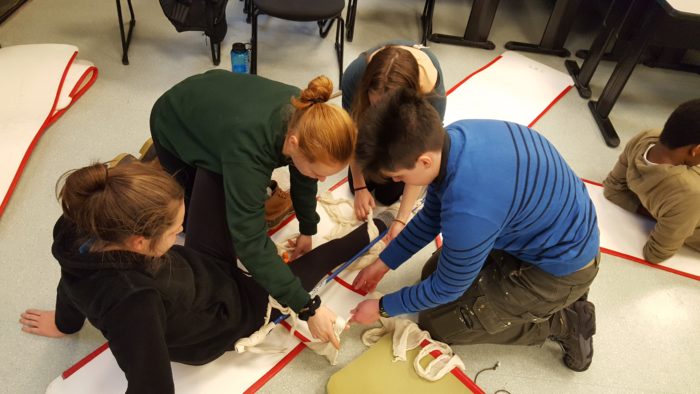The Wilderness EMT Course is the comprehensive, evidence-based wilderness medicine course that prepares the student to handle injury and illness in the world’s wildest places, far from help. Folks will learn everything it takes to provide assessment and care with improvised tools, how to rescue someone from deep in the woods, and then climb into the ambulance and know how to work in the back of the truck. From emergencies to health maintenance in wild places, students learn how to assess people in challenging conditions, handle life threats of airway, respiratory, and circulatory problems, stop bleeds, long-term wound care, sprains, strains, fractures, head/spine injury, cold/heat injuries, bites, stings, altitude problems, dive injuries, organizing a back-country rescue, and much more. Throughout the process, students learn the predictable and preventable behaviors that are at the heart of most of the bad things that happen in the wild. Outdoor leadership and wilderness rescue are woven in an integral part of wilderness preparedness and rescue.
We teach “practicable principles” and focus on not only what to do, but how to do it, in the wild, with what you can cobble together from your patient’s pack, your pack and the world around you. Simultaneously, you will be learning all about the urban landscape of EMS, how the system is built, and what it is like to work in the ambulance. All students spend time working in real clinical settings/ambulances.

This “immersion-based” schedule allows the student to move through the training process full time, completing the 180+ hour curriculum in just 3+ weeks. The classes are typically, 6 days a week, 9 hour days with Sundays off (clinical time is evenings and Sundays). You will begin an active, dynamic experiential process of lecture, skill labs, scenarios, mock drills, team-building, and online study, with teachers who have decades in wilderness medicine practice and education. This course prepares the student for the National Registry exams and Nationally recognized certification. 180+ hours…usually over 3 weeks.